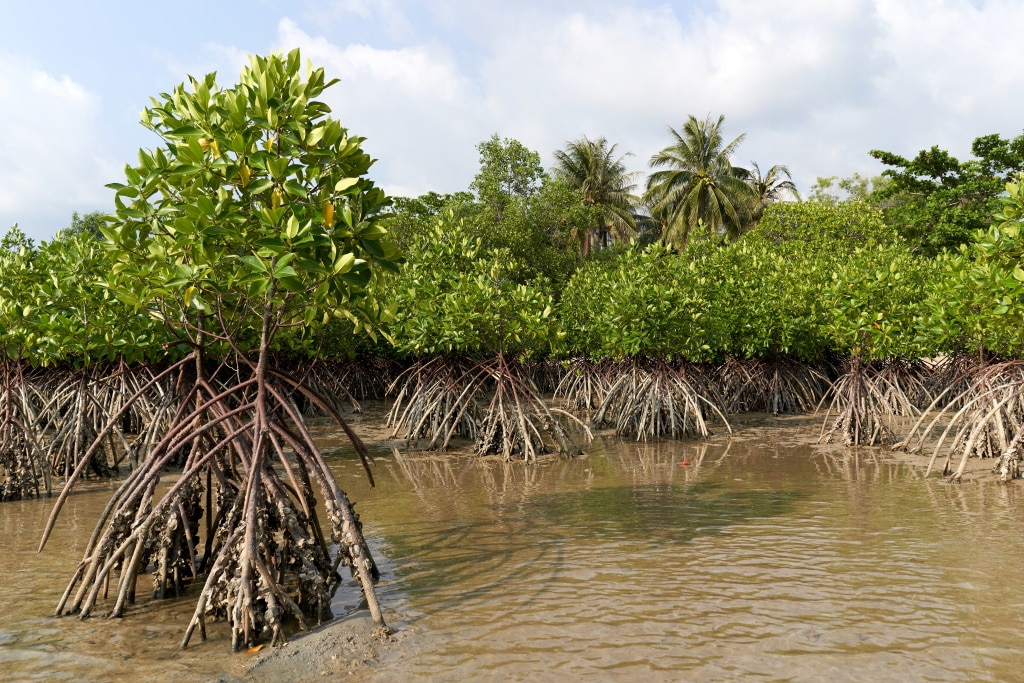In Incheon, Republic of Korea, the fourth and final annual meeting of the Green Climate Fund (GCF) Board of Directors approved $544.1 million in global funding for climate projects. Of this funding, $9.8 million is for climate adaptation and resilience in Guinea-Bissau.
In this West African country, small-scale coastal farmers face seawater intrusion as a result of rising sea levels, tidal waves and other adverse weather conditions. Seawater intrusion poses a serious threat to the country’s mangroves, which are a major source of income (mangrove rice production) in addition to providing coastal protection and habitat for biodiversity development.
Mangrove restoration
Faced with saline intrusion, the Sahara and Sahel Observatory (OSS) is implementing a project aimed at adapting the farming populations affected by this phenomenon in the north-western and central-northern parts of Guinea-Bissau. In the localities of Oio and Cacheu, OSS will improve observation and monitoring of water and soil quality. Saline intrusion reduces the fertility or completely destroys agricultural land. According to the UN Food and Agriculture Organisation (FAO), 20% of irrigated land in the world is affected by salinity problems.
Read also- BENIN/GAMBIA: the VCF releases $60M for climate resilience in rural areas
The OSS project also focuses on the rehabilitation of small-scale water management systems based on rainwater retention for irrigation. To limit the intrusion of sea water into the plantations, mangroves that naturally serve as a buffer zone will be reforested over at least 250 hectares. Also, agricultural value chains will be strengthened through microenterprises. With GCF funding, the project activities will be launched in early 2023 for a period of five years.
According to OSS, the project is expected to directly benefit 82,450 people, 70% of whom are women. Its implementation is supported by the Guinea-Bissau Ministry of Agriculture, the Secretariat of State for the Environment and Biodiversity, the Directorate General of Water Resources, the National Environment Institute, the Institute for Biodiversity and Protected Areas, and the non-governmental organisation (NGO) Ajuda de Desenvolvimento de Povo para Povo (ADPP).
Jean Marie Takouleu
